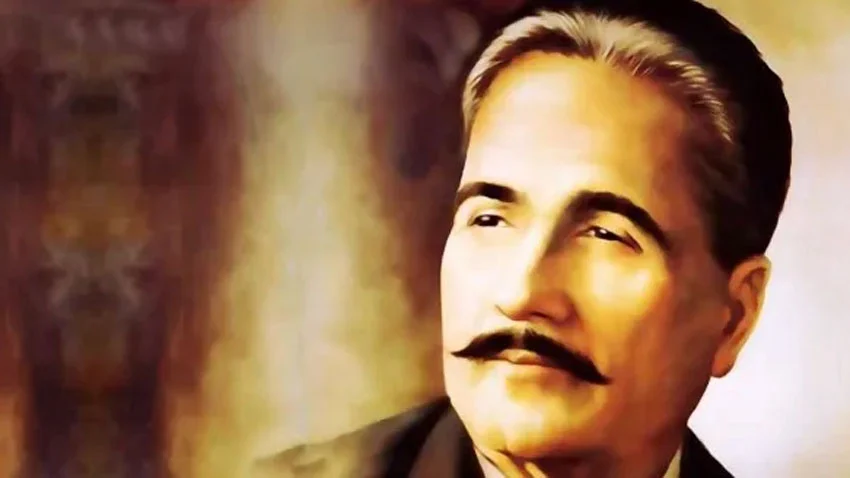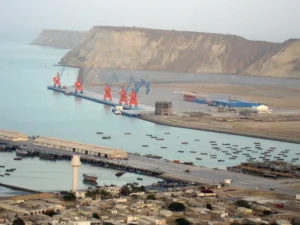As Pakistan prepares to commemorate the birth anniversary of its national poet, Allama Muhammad Iqbal, on April 21st, a critical examination of his economic thought becomes especially timely. Iqbal, a visionary thinker, established the foundation for an autonomous Muslim state based on self-sufficiency, social justice, and economic empowerment. Examining his ideas provides crucial insights for handling Pakistan’s current economic issues.
Capitalism is Individualism at its highest perfection… It transforms society into a heap of unrelated individuals.
Iqbal’s economic thought was not a fixed, predetermined framework. It arose from a thorough knowledge of Islamic precepts and the realities of colonialism. He was fiercely opposed to capitalism’s exploitative nature, which he saw as perpetuating economic disparities and subjugating emerging nations. In his seminal work, The Reconstruction of Religious Thought in Islam (1930), he criticizes capitalism, claiming, “Capitalism is Individualism at its highest perfection… It transforms society into a heap of unrelated individuals.” He envisioned an economic paradigm based on Islamic values like cooperation, shared prosperity, and social responsibility.
One of the pillars of Iqbal’s economic philosophy is the concept of “khudi,” which translates to self-hood or ego. In his magnum opus, The Secrets of the Self (1915), Iqbal emphasizes the value of individual potential and strive for perfection. He felt that a country’s economic success was dependent on its population acquiring a strong sense of self-worth and a work ethic driven by internal motivation rather than material gain. (Secrets of the Self). This is consistent with the need to promote entrepreneurship, innovation, and a competent workforce in modern Pakistan.
“Islam requires the establishment of an economic order which, while recognizing the value of private property, should restrict its accumulation when it does not serve social needs and benefits.
However, Iqbal advised against the unrestrained pursuit of personal gain. He argued for a balance between individual initiative and societal responsibility. He envisioned an Islamic economic system founded on the values of “adl” (justice) and “ihsan” (compassion). In his book The Reconstruction of Religious Thought in Islam, he argues, “Islam requires the establishment of an economic order which, while recognizing the value of private property, should restrict its accumulation when it does not serve social needs and benefits.” This emphasis on social justice aligns with the need for equitable economic distribution and poverty reduction measures in modern Pakistan.
Furthermore, Iqbal understood the significance of zakat (obligatory charity) as a weapon for economic redistribution. He saw zakat as a foundation of Islamic economics capable of bridging the rich-poor divide. An efficient and transparent zakat system has the potential to significantly reduce poverty and promote social mobility in Pakistan.
Another important feature of Iqbal’s economic philosophy is his emphasis on self-sufficiency. He fiercely opposed colonialism’s exploitation of resources and called for the creation of a self-sufficient economy. In his poetry “Jawab-e-Shikwa” (The Answer to the Complaint), he condemns the dependence on foreign forces – A nation is truly Muslim where there is self-reliance”. This aligns with Pakistan’s goal to diversify its economy, reduce reliance on imports, and explore local resources for long-term growth.
Iqbal also understood the role of science and technology in economic progress. He stated that in order to succeed in today’s world, Muslims must embrace scientific breakthroughs. In his poem “Tarana-e-Milli” (National Anthem), he urges Muslims to: (ilm o fan mein ho taraqqi doam) – May there be continuous progress in knowledge and technology”. This is consistent with Pakistan’s need to invest in education, R&D, and technology infrastructure to attain economic competitiveness.
Also Read: Taking the Lead: Embracing Iqbal’s Vision for Tomorrow
However, translating Iqbal’s philosophical ideas into practical economic policies requires careful consideration. Implementing an Islamic economic system necessitates navigating complex issues like the role of the state in economic activity, the regulation of financial institutions, and the management of natural resources.
Pakistan’s current economic challenges – including high inflation, unemployment, and external debt – necessitate a multi-pronged approach. Lessons from Iqbal’s philosophy can provide valuable guidance. Promoting individual initiative, fostering social responsibility, and implementing a robust zakat system can contribute to a more equitable distribution of wealth. Investing in education, science & technology, and infrastructure development can pave the way for self-reliance and long-term economic growth.
Celebrating Allama Iqbal Day is more than just a commemoration. It is an opportunity to re-evaluate his enduring economic philosophy and identify its relevance to Pakistan’s contemporary challenges. By drawing inspiration from Iqbal’s vision of a just, prosperous, and independent Pakistan, the nation can chart a course towards a brighter economic future. Iqbal Day is a call to action to revive his spirit of self-belief, hard work, and striving for collective betterment – values that remain as relevant today as they were during his lifetime.
The opinions shared in this article reflect the author’s personal views and do not necessarily align with the institution’s official stance.




